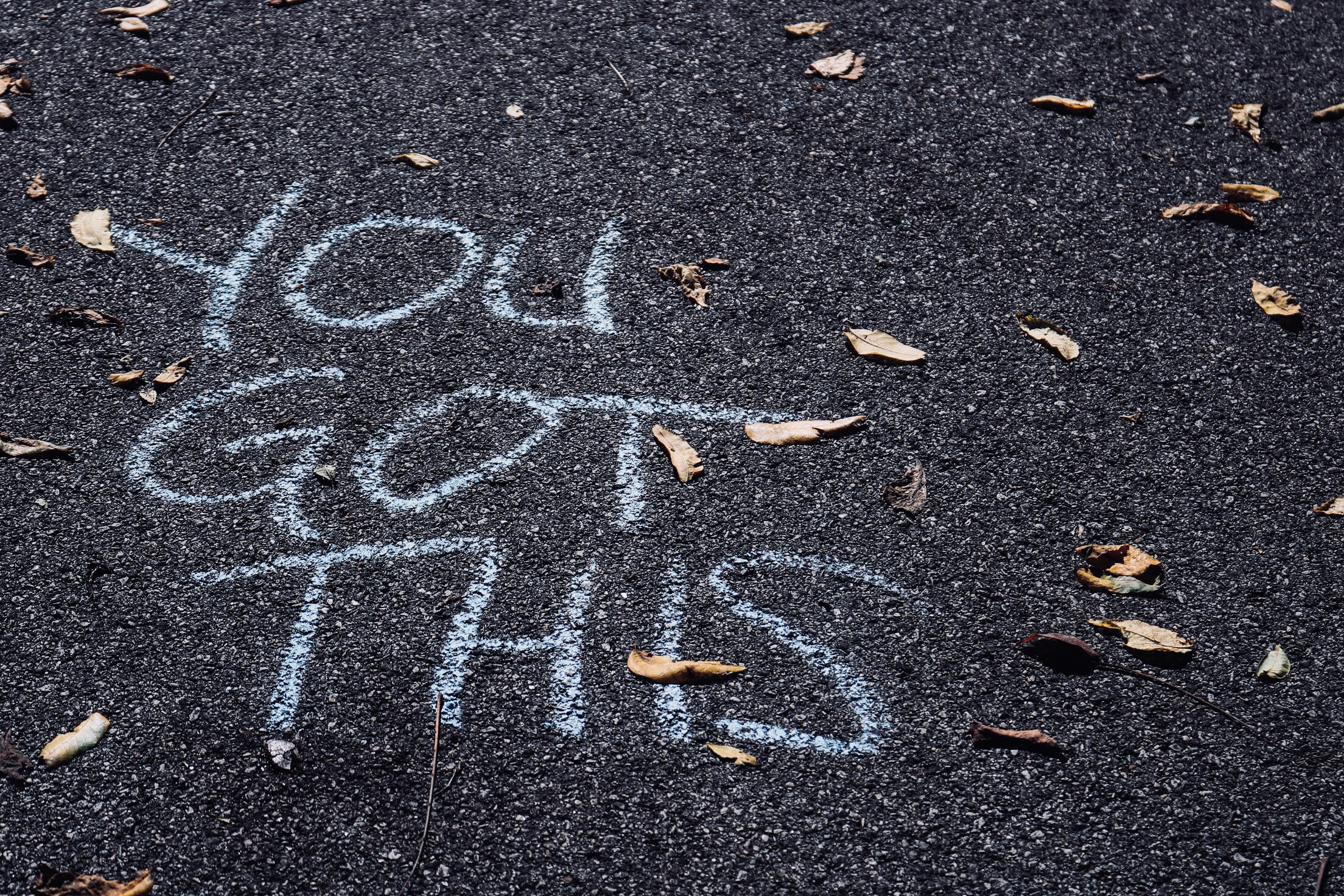“YOUR opinion of ME is none of MY business!”
— Joseph Binning
Self-Image is the mental picture one has of oneself, of a kind resistant to change, that depicts, not only details available to aim investigation by others (height, weight, hair color, etc.), but also items that you have learned by the person about themselves, either from personal experiences, or by internalizing the judgments of others. — Wikipedia
Your self-image comprises four mental pictures:
- Physical appearance.
- Worth because of what you learned through life experiences.
- Goodness, because of internalizing the judgments, thoughts, and views of others about you.
- Your total self, because of personal beliefs, perceptions, and illusions you have about yourself.
So the question I’m asking you is, how do you picture yourself? How do you know if the image you see of you is the real you? One simple way to find an individual’s self-image is by asking yourself, “What do you believe other people’s opinions are of you? How do you think others see you?”
Ask yourself if what you do, where you go, what you say, or how you act is to be a part of or having a sense of belonging to something? Do you do these because they feed your soul? Do you Love because you need to be Love? Or, do you Love because you need to Love?
Is your sense of happiness, belonging, or worth only made by someone else’s attention, protection, support, or affection? Are you are seeking validation that you are lovable and worthy of loving from things and people outside of you? Do you base your feelings on fitting in or receiving attention, acceptance, approval, or praise from someone, or something outside of you? If so, you have not identified and integrated your sense of self, your self-value. News flash: you are not what you do, who you do it for, who you are with, how, when, where you fit in, or what possessions surround you. You are none of that.
How do you know you have not yet identified or integrated a strong sense of self?
If something breaks, if you don’t accomplish something, or if I make a negative comment, would you experience a sense of feeling lower, loss, anger, or even depression. Here’s an example: If I became angry and called you a name, do you think you would you take it personal? Let’s be crazy for a moment and pretend that I called you an ugly chair. Would it offend you?
What if I took it further and told you you were the most uncomfortable seat I’d ever experienced? What if I told you how weak your legs were? That your back is rickety, you’re painted an ugly color? Or that you should just put yourself out of your misery and take yourself to the dumpster? It’s crazy, I know. But I am calling you something you are not or telling you my perception of you. Did you get offended because you believed it?
Probably not. Why? Because it’s not true. You are not a chair; you are human.
You put energy and emotion and thought into others’ opinions.
When someone, whose respect, approval, attention, or Love is something you want or need, calls you foolish or ignorant, or ignores you, do you have a sense of feeling lower, angry, or depressed. Why? Because you want them to approve of you and accept you and talk well of you. Why? Because you believe what they believe of you is true!
My perception of you is none of your business.
People’s perception of you is not complete or correct. People’s opinion of you doesn’t decide your value. No one’s opinion of you determines your truth.
Your opinion of you is what determines your value and truth, and only you are in control of creating that.
Words have power only if you allow them
How can someone say something to you, you know isn’t true aka the chair example, but believe it? By not knowing who you are. When you define yourself by the words and decisions of others and don’t take the time and dedication to focus and discover the truth of who you are for yourself, you will be forever sensitive to, and weakened by the words, opinions, and actions of others. Empower yourself by knowing who you are, what you love, what you want, what you can do, and why you are here.
Take this Self-Image Assessment test
Answer the following questions True or False:
- Is my glass empty?
- I find I apologize for things, or say, “Sorry.”
- Do I often hear myself telling myself “I should” be doing this or that?
- I find I have a habit of criticizing myself.
- Does what other people think about me affects the way I think about myself.
- I relive or over analyze my mistakes.
- Do you tell yourself I think I have let people who care about me down?
- It seems I have the weight of the world on my shoulders.
- Do I believe a partial failure equals a complete failure, and I make do it a lot?
- I bend over backwards to please people.
- I don’t rarely show my emotions.
- I’m not sure I’ve done a good job until someone tells me whether I have.
- If I don’t do as well at something as others, it’s because I have to try harder than others.
- I believe if I can’t do something well, I won’t do it.
Tally your responses by giving yourself one (1) point for every statement that you answered True.
Results
0-4 You have a positive way of thinking and a positive self-image of yourself. Great job!
5-9 You struggle with negative emotions. Review your good qualities every day.
10-14 You are judgmental of yourself. Challenge yourself to change your way of thinking.
Each of you has a story.
You compose your own story of many beliefs and experiences, including the four self-images each of you has see as ourselves. Your story dictates how you see yourself. Someone was mean and never apologized, so your hurt feelings turn into resentment, which turns into a wound you carry, which causes you to act mean to others. You don’t accept the feeling of being forgiven for something you’re ashamed of, so you hold back forgiveness for others. You gave you the message you were not worthy, so you don’t expect the feeling of being worthy, and you allow others to ignore, condemn, use, or abuse you.
Your minds create negative chatter.
The problem with having a story based on false information is that the mind tells you what to believe and what to listen to. As you listen, you create your realities, based on your mind chatter, your story, and your self-image.
When you create this reality that says: My life looks like this or: or my life should look like this: or I deserve treatment such as this, you end up not liking yourselves for being mean to others, for holding back forgiveness, for allowing others to mistreat or ignore you. You mistreat yourself, hold back your own emotional nourishment, and put yourself last. You know you want to change, but don’t know how, because you’re conditioned to believe this story that dictates whether you are deserving of feeling better.
When you believe that this reality you created is how life is.
When you’re not aware that you have created this, your life becomes an illusion. Your distorted self-image has been growing for so many years it has become entwined into every part of your being, and you cannot see that it is not real, and that it is not a true reflection of who you are.
What is the ultimate and only reason we don’t have a correct, strong, and high self-image?
FEAR.
Fear keeps us frozen (see my post titled What I Learned From Being Stuck and Frozen and why you need to read this) sometimes for years—sometimes entire lifetimes. Here’s what I mean by fear.
- The Fear of Disappointing Someone
- Fear of Failing
- The Fear of Being Alone
- Fear of Being Wrong
- The Fear of Dying
- Fear of Making the Wrong Choice
- The Fear of Being Hurt
- Fear of Making a Mistake
- The Fear of Feeling Not Good Enough, Smart Enough, Pretty or Handsome Enough, Strong Enough, Capable Enough, Exciting Enough
- Fear of Not Being Seen
- The Fear of Not Being Chosen
- Fear of Being Thought Strange
- The Fear of Falling
You might tell yourself that you are not afraid; you are just a caring, realistic, concerned, smart, cautious, or even an intentional person. But if any of these self-defined characteristics cause you to do things other than what you want to, they are running you. They are inward drivers dictating your behaviors.
Why are you so afraid—aka worried, thoughtful, realistic, concerned, smart, cautious?
Most of your conditioning is from birth, by everyone who has had an influence on you, causing you to believe that you are not capable, deserving, self-equipped, or powerful on your own and that you may need acceptance, protection, and to be molded and directed. This false set of beliefs has hypnotized you into a crippling amnesia that has caused you to forget who you are. (Read my post on Mediocrity * not the life you’re here for, for more.)
Despite what life may have taught you, you cannot find the truth outside of yourself, in someone else, or by applying any external remedy. You cannot solve an internal distortion with an external action. No vacation, medicine, food, job, therapy, or relationship can fix a distorted view of yourself and your reality.
How to find your true Self by sitting, with just your Self.
The way to get to know who you really are is by taking time by yourself, getting to know your Self. Get to know the parts of the Real You that has always been—the innocent, wonder-filled, joy-seeking fresh Being that is still You, the You who believed in possibility, the You who dreamed and wished and believed, the You who explored and created and pretended. The who made imaginary houses, travels, and worlds. Your true SELF has no limits and is unstoppable.
“Humanity’s problems stem from man’s inability to sit in a room alone.”
— Blaise Pascal, French Philosopher
The true You is still in you, and so much more.
Get to know the new parts you haven’t taken time to know yet or integrate—the parts of You-you are becoming, the parts of you that have grown, developed, clarified, and evolved into, and the parts you are visioning for yourself. How do you see your true self? By taking time alone, separating your true Self from everyone else to find out who you are contrary to the world’s opinions, illusions, and dictations. That is the path to discovering every wonderful, unique, and minute detail that makes you YOU.
You can create what you wish to believe in concerning yourself, if you Choose.
Choose in this now moment, and from this moment forward, to create a new reality for yourself. When something doesn’t end up the way you wanted it to, or thought it should, don’t say, “This always happens to me,” instead ask yourself, “How does this affect me? Who am I being with this thinking? Is this me? Am I acting like the person I want to be? How am I feeling scared, angry, controlled, hurt, wrong, not good enough? How do I want to act? What new learning am I getting from this thinking? What outcome do I want? How can I create my outcome? How can I own this now moment? Ask yourself what is a new way or idea of thinking right now? How do I want to be in this moment?”
How to free yourself from these fears that affect your actions, routine, thoughts, behavior, body, mood, emotions, freedom.
As you lay in bed at night, before you go to sleep, begin a habit of one or more of these practices to own the good in your Self:
- Focus on what went right today. What went well with it? What felt good? Only good. Don’t do the “High and Low” game. Don’t focus on what went wrong. Only do the high. What did you learn or discover?
- Go to a place inside of you that feels gratitude for today, but not for things. Things are fleeting. Focus on moments. Moments can stay in the mind and heart forever. Your moments belong only to you.
- Create a victory journal and write your victories of the day, great and small. When you’re feeling low, re-read the victories and relive them. Remind yourself of your ability to have them.
- As you lay awaiting sleep, pay close attention to what you let into your thoughts. Remember, a tire does not go flat all at once. It happens slowly. Thoughts are similar. They gather momentum, no matter which way they go. Refocus your thoughts toward the positive, appreciative, reflective, to keep them from going sour. Fall asleep with the thoughts of the good in our mind.
Remember to stand on the highest place in your story, not on the bottom.
From the moment you make the choice to create a new reality for your Self, you are no longer a victim. Begin small or big, here or there. It matters not where. Just begin. The Tao Te Ching says, “the journey of a thousand miles begins with a single step”. Take the first step, and then the next, and the next. It’s Amazing how far you will go and how fast you will grow.
From this day forward, live your life by two rules:
- No Regrets. Think about everything you do, and the potential consequences good or bad, BEFORE you do them. Then own them.
-
Always remember my saying, “Your opinion of Me is none of MY business.”
Do not be a prisoner of other people’s opinions of you. When they say something to you you know is not true (remember the chair example) your new answer should be “I’m sorry you feel that way.” Stand tall in YOUR truth. Your NEW story.
The Universe made only one of you.
There is only one You and You are Perfect. The world needs your uniqueness, but only when you are being you, not someone else. It’s your self-image that you are creating, not a duplicate of someone else.
Life rewards the brave, bold, and clear minded. Embrace who you are, with no fear.
Be who you are boldly. Always be bold in expressing who you are.
You have boldness, bravery, and clarity in you.
Remember, you were born with it.
Now be Great!



